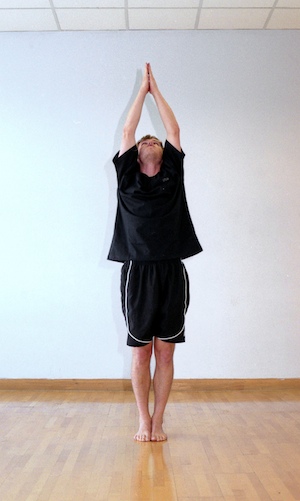By Damon Leedale-Brown, Sports Scientist & Conditioning Specialist
In the past two issues we have discussed recovery from training and competition and introduced simple physiological strategies and nutritional principles that play a key role in this process. In this issue we will consider the mental side of recovery and relaxation.
Optimum performance in any sport is a fine balance between training stress and subsequent recovery. Optimum recovery strategies will vary between athletes and are influenced by the type of training fatigue, current levels of training and non-training stress, and also the athlete’s overall capacity to cope with stress. While it is relatively easy to monitor the training load and physical stress on an athlete using diaries and training logs, it is more difficult to identify and monitor psychological and emotional stressors. Both of these can have a major effect on overall stress, and so can negatively impact the quality of training and performance.

As a coach it is important to have an understanding of areas within a player’s lifestyle that could be affecting his or her performance in training and competition, and compromising their recovery. This could include:
- Quality and Quantity of sleep
- Levels of competition stress
- Level of academic, work or financial stress
- The quality and stability of a player’s relationships (e.g., family, friends, partners, coaches, training partners)
- The overall balance in day to day life—lifestyle management
Equally, as a player, if you understand and are able to identify areas that create additional stress outside of your training and performance, it is then easier to take positive steps to try and minimize the impact these stressors have, and improve the quality of your mental recovery.
We already know how important sleep is for mental and physiological regeneration and repair, and the areas identified above can all have a major impact on sleep quantity and quality. I have recently been working with a World Class player who had major issues sleeping well during competition as their mind was always busy with the next match or the next opponent, and they expended too much emotional energy during the tournament before even stepping on court. Some simple changes to help the player relax more during the day and get away from the court resulted in the player being in a much better state of mind when they came to perform, and also a major improvement in the quality of their sleep.
Around heavy periods of training and competition all players should be encouraged to develop methods specific to themselves that help facilitate relaxation and mental recovery. For many players being able to relax completely and clear their minds helps significantly with the following:
• To fall into a deep and restful sleep especially before or after matches in tournaments.
• To remain calm and conserve emotional energy during the final hours building up to an important match or competition.
• To rest and recover well when traveling between events.
• To improve recovery from illness and injury.
To assist with relaxation some athletes like to go through a series of specific deep relaxation techniques where they focus on breathing slowly and easily, and feel areas of tension being released from different muscle groups often as they work down their body from head to toe. Others use this time as an opportunity to focus on images that help bring on relaxation such as sitting on their favorite beach watching the sunset as the waves lap gently at their feet.
It is very important for any athlete to make sure they spend time participating in alternative activities away from their sport (and work) that help them to relax and regenerate mentally. This could include spending time with friends, being alone, watching a movie, listening to music, reading, being outside, having a massage, attending a yoga class; the list goes on!
Basically there is no one right way to relax. What is more important is that you are open-minded and willing to try different strategies to find what works best for you.
The last three issues have helped us understand that to get the best out of ourselves in training and performance is not just about what we do on court, but heavily influenced by how we recover off-court. Implementing some simple physical, nutritional and mental recovery strategies into your program should help reduce the overall stress on your body and allow you to perform consistently better in training and competition.





